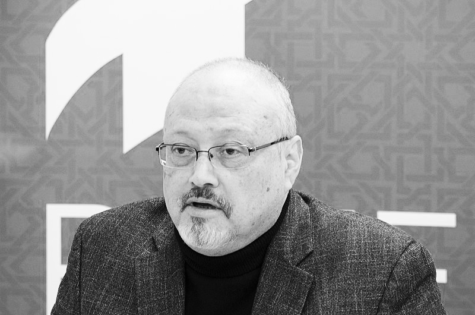What Jamal Khashoggi’s death means
And how journalism is under fire around the world.
December 30, 2018

What the Arab world needs most is free expression. This is the title of the last article published by the Saudi Arabian journalist, Jamal Khashoggi, in The Washington Post on October 17, fifteen days after his murder.
Khashoggi’s last article happened to be about what he is suspected to have been killed for. Known for his provocative articles condemning the Saudi Arabian government and policies, Khashoggi entered the Saudi consulate in Istanbul, Turkey on October 2nd, 2018. He never left.
Jamal Khashoggi, born in Medina, Saudi Arabia, was a citizen of both Saudi Arabia and the United States. During the 1980s and 1990s, he served as a correspondent, reporter, managing editor, and editor-in-chief for various newspapers, as well as a foreign correspondent in Afghanistan, Algeria, Kuwait, Sudan, and other regions of the Middle East.
Khashoggi, who was very open about his political beliefs, disagreed with many established Saudi Arabian laws. This included gender equality, freedom of speech, religious tolerance, and free press.
Some of Khashoggi’s most controversial works had to do with the shortcomings of Saudi Arabia. The Saudi government, an absolute monarchy, historically doesn’t tolerate criticism.
Jamal Khashoggi’s murder was very violent. Turkish officials say the torture started almost immediately after he entered the consulate. Anne Applebaum, an author and journalist, told Canadian Broadcasting Corporation’s The Investigators “If you kill one journalist, then you frighten a whole lot of others […] because the reach of authoritarians and their interest in silencing people is really greater than it ever was.”
Khashoggi wasn’t the first journalist killed this year. According to the Committee to Protect Journalists, more than 40 journalists have been killed worldwide so far in 2018.
Whether the intent of Khashoggi’s murder was to frighten other critical voices is still a question. It is not a question, however, whether his murder silenced one.
To read some of Jamal Khashoggi’s work, go to washingtonpost.com, and search Jamal Khashoggi.






